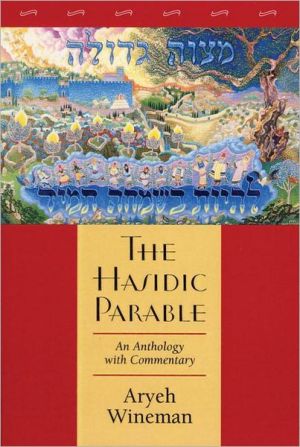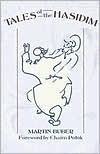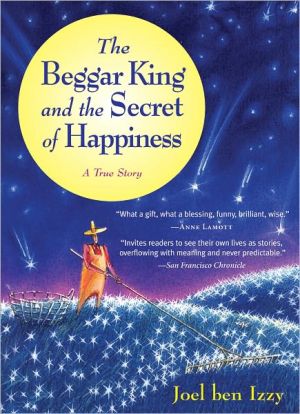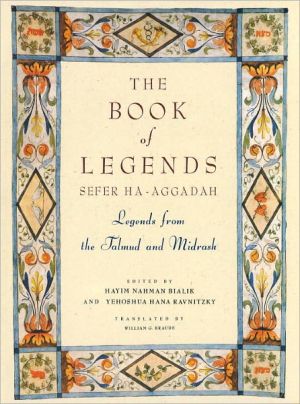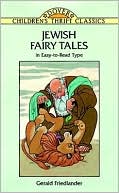The Hasidic Parable: An Anthology with Commentary
The teachers of Hasidism gave new life to the literary tradition of parable, a story that teaches a spiritual or moral truth. In The Hasidic Parable, acclaimed author Aryeh Wineman takes readers through the great works of the hasidic storytellers. Telling parables, explains Rabbi Wineman, was a strategy that the hasidic masters used to foster a radical shift in thinking about God, the world, and the values and norms of religious life. Although these parables date back 200 years or more, they...
Search in google:
The teachers of Hasidism gave new life to the literary tradition of parable, a story that teaches a spiritual or moral truth. In The Hasidic Parable, acclaimed author Aryeh Wineman takes readers through the great works of the hasidic storytellers. Telling parables, explains Rabbi Wineman, was a strategy that the hasidic masters used to foster a radical shift in thinking about God, the world, and the values and norms of religious life. Although these parables date back 200 years or more, they deal with moral and religious themes and issues still relevant today. Each is accompanied by notes and commentary by the author that illuminate their ideological significance and their historical roots and background. These parables have been culled from classical hasidic homiletic texts, chosen because of their literary qualities, their explanation of key concepts in the hasidic world-view, and also because of what they say to us about the conflicts and tensions accompanying Hasidism's emergence and growth.
\ \ \ \ Chapter One\ \ \ Paradox\ and the\ Unexpected\ \ \ \ * * *\ \ \ Sadness in Finding\ a Treasure\ * * *\ \ \ "I rejoice in Your words as one who finds great booty" (Ps. 119:162). Why does the verse liken God's words to great booty? A parable of a man who, walking along the way, comes upon an enormous treasure with coins too numerous to count, and he takes from the treasure a great deal of money, all that he is able to carry, and he is exceedingly joyful. But when ready to leave, he notes that he has to leave behind a vast portion of the treasure as he has no containers with which to carry the great wealth, and this brings him distress.\ And that is as it says, "I rejoice in your words," in what I learned and acquired. But in the end, though I learned much Torah, I don't consider that to my credit, because I am aware of the extent of Torah knowledge that I still lack; aware that all that I succeeded in acquiring of Torah is merely as a drop from the sea—as [the case of] that person who finds a great treasure. (Or torah)\ \ \ The above parable is found in a collection of comments on verses from the Book of Psalms in the name of the Maggid, Dov Baer of Mezherich (d. 1772). It echoes, however, an association found in a much earlier source, Mekhilta derabbi Yishma'el, a tanna'itic legal midrash on the Book of Exodus, which contains the following comment: "Booty signifies Torah, as it is said, `I rejoice in Your words as one who finds great booty'" (Ps. 119:162).\ The parable itself directly counters the reaction that the reader (or listener) expects from the person who finds such a great treasure. He assumes a response of happiness and gladness, but the person in the parable instead feels a pronounced sadness. A highly ironic thrust is cast upon the mention of rejoicing in the verse from Psalms that is quoted. The parable as related by the Maggid, however, is still more complex because the two parts of the text—the mashal and the nimshal (the parable story and its given explanation and application)—each have their own very different connotations. The mashal, taken by itself, would convey something long known about human nature—that a person is never satisfied, certainly not with material possessions. "The eye is not satiated with riches" (Eccl. 4:8; note also Prov. 27:20). For many, that persistent inability to be content negates the very possibility of happiness. As the sage Ben Zoma taught in the Mishnah, "Who is rich? That person who rejoices in his lot"—whatever his lot may be. The mashal itself has the tenor of a wisdom parable and may well have been an independent parable that acquired a very different kind of application in the Maggid's interpretation.\ The nimshal contains a personal confession, a realization on the part of the speaker, of the extent of Torah that he does not know. A person of knowledge, it follows, should, like Socrates, be humble in the face of all that he does not know.\ In the background of the rise of eighteenth-century Hasidism lies a contention voiced by several of the early hasidic teachers, and perhaps foremost by Rabbi Ya'akov Yosef of Polonnoye, a critique of the world of talmudic learning in the traditional academy, the yeshivah, and in the rabbinic world at large. Talmudic scholars and rabbis, it was charged, were using learning as a means of satisfying one's own ego, engaging in the study of Torah as one might engage in a chess tournament with the aim of triumphing over others. Rather than Torah serving as a cure for pride and self-centeredness, it became instead a channel to express the idolatrous quality of pride. While various types of criticism of prevalent types of Torah learning are present also in somewhat earlier Eastern European Jewish texts, the above criticism comprises a recurrent note in classical hasidic sources. That kind of harsh criticism of the world of talmudic learning was certainly a factor in provoking hostility on the part of the rabbinate and of the more conventional Jewish religious community—hostility that culminated in acts of excommunication of the followers of Hasidism in the latter decades of the eighteenth century. The parable related by the Maggid, who himself enjoyed a reputation of being an accomplished talmudic scholar, presents a countermotif to the pride that the Hasidim of the time attributed to members of the learned class among Jews.\ In this light, the reader might ask whether the containers (kelim, also tools or vessels) mentioned in the parable have a special meaning. Perhaps the Maggid is implying that members of the aristocracy of learning who turn only to cognitive tools, tools of the mind, were employing the wrong kind of tools; that tools of a more inner and spiritual nature are also necessary in order truly to acquire the treasure of Torah. To the mind of the Maggid and his students, Torah is more than a body of knowledge to be acquired; it is an instrument of spiritual purification and transformation. And knowledge by itself can sometimes have effects in the very opposite direction.\ The verse from Psalms that opens the parable likens God's word to great booty, while the parable speaks instead of a great treasure. The word found in the verse from Psalms, shelal (booty), suggests that the spoils of battle, though ethically questionable, are nevertheless a kind of reward for battle, whereas the word otzar (treasure) completely avoids any connotation of reward—of something that the person has merited in some way. Finding such an unexpected treasure evokes unexpected joy, a joy however that, as in the mashal, quickly turns into distress.\ While in both the mashal and the nimshal the person's emotional lack outweighs his gain, the thrust is decidedly different for each part of the parable. In the mashal, the person experiences distress, whereas in the nimshal he experiences humility. Perhaps the Maggid's rendition of the parable ultimately suggests an additional nuance identifying humility itself as a treasure.\ \ \ The Clown on the Day of Judgment\ * * *\ \ \ A king had designated a particular day of judgment that he might scrutinize the deeds of his subjects, and he instituted for that day all the mechanisms and protocol of judgment. When the people of the land heard of the great and awesome judgment, trepidation and despair came over them, and they cried out hopelessly, "Woe to us because of the day of judgment and rebuke and in particular because of the wrathful countenance of the king toward us, for our guilt is great. We failed to execute his commands, and we rebelled against him. And who will be able to endure his wrath? Certainly our defenders will be powerless to speak on our behalf in the face of the king's wrath, and our accusers will prevail."\ The subjects reason that first they must attempt to remove the wrath of the king. What do they do? They choose one very wise man, with the likes of a clown. And when he comes before the king he begins speaking words of parable and imagery, words of desire and joy and of praise of the king's great and exalted state, and he includes many humorous things, proceeding from one parable to another, from one glad thing to another, as though he himself were not among the king's subjects standing in judgment—until he succeeds not only in removing the king's anger but also in giving the king joy and delight....\ And when the accusers noted that the king, with joy and favor, had become reconciled with his subjects, they ceased speaking and fled the scene, while those who defended the people prevailed and determined the course of the judgment. (Or torah)\ \ \ Having set the stage for a situation of awe and fear, the parable story then appears to escape from that very situation as it takes on the effects of fantasy and hyperbole. It has a charming ending, even though the hearer cannot avoid feeling that it is told in a tongue-in-cheek manner. Just imagine such an occurrence in a courtroom!\ But the real significance of the parable applies on the level of the nimshal—the explanation of the story offered in the text. The nimshal refers to the importance of reciting the Verses of Song along with the reading of passages concerning the sacrifices (offered in a festive context) and the reading of praises and blessings preceding the Amidah on the holy day of Rosh Hashanah, even though inclusion of such utterances might seem thoroughly out of context on such an occasion of judgment.\ The parable is related within a homily of the Maggid on a biblical verse, Psalms 81:4, "Blow the horn on the new moon, on the full moon for our feast day." Certainly by virtue of its mention of the horn (shofar), the verse was interpreted as referring to Rosh Hashanah and is, in fact, recited in the liturgy of that day. The holy day of Rosh Hashanah falls on the very beginning of the lunar month (the new moon) and the Hebrew word ba-keseh in that verse has, in fact, been understood both as the new moon and as the time when the light of the moon is covered, hence just preceding its reappearance. The first day of the seventh month acquired, over time, both the name Rosh Hashanah (beginning of the year) and the association of a time of judgment. The parable may be echoing the opening verse of that psalm, "Sing joyously to God ... take up a song, sound the timbrel, the melodious lyre, and harp" (Ps. 81:1). The homilist, however, mentions the concluding word of the verse he is interpreting, hagenu (feast day, festive day), and dissects the word hag (feast day) into its two constituent letters, which he then interprets as suggestive of two of the kabbalistic sefirot (forms and manifestations of the Infinite Divine Being and Energy): hesed (lovingkindness) and gevurah (judgment). On the day the shofar is sounded, judgment is transformed into lovingkindness. The very demeanor of the king who judges is transformed from anger to kindness.\ The text of the parable includes also an interpretation of zemirot (songs) that relates the root zmr (to sing) to another verb form with the same root letters meaning to prune, as the song prunes the kelipot (the demonic shells of the abyss), which, in Lurianic Kabbalah, comprise the antithesis of the holy. Underlying this complicated network of reasoning is the idea that joy can be a path of inner purification and atonement.\ Comparing man's judgment before God in this parable to a more modern frame of reference, such as Kafka's The Trial, the reader will note in the hasidic parable a decidedly redeeming aspect in its conception of judgment. The legal authority—the judge and the prosecution—evokes deep anxiety and trembling, which then give way to a decisive lightening of mood that flows from the unstated realization that, after all is considered, a child is standing in judgment before his or her own parent! The clown figure is able to accomplish what serious pleading might be wholly unable to effect, namely an annulment of the king's wrath. And this is possible because, in the final analysis, the king's anger—as voiced in many parables, especially those told by the Maggid's student, Rabbi Levi Yitzhak of Berdichev—is itself but a mask disguising his love and compassion for his children. Beneath the veneer of the cruelty of judgment lies another reality—that of redemptive joy.\ The parable tends to reassess the function of poetry in the liturgy of a season of judgment. The liturgical poems (piyyutim) serve not as an expression of pleading, but rather as a way of providing delight to God. The reader can detect in this parable a subtle nuance negating, from within, the very scene of judgment.\ As related by the Maggid, this parable extols the virtues of humor, of song and poetry, and of the intrinsic joy felt in parable itself.\ \ \ Excerpted from The Hasidic Parable by Aryeh Wineman. Copyright © 2001 by Aryeh Wineman. Excerpted by permission. All rights reserved. No part of this excerpt may be reproduced or reprinted without permission in writing from the publisher. \ \ \ \
PrefaceIntroductionParadox and the Unexpected1Sadness in Finding a Treasure3The Clown on the Day of Judgment6Chipping Away at the Mountain10God in Transit15The Correct Motivation20The Talking Bird23Compassion as Punishment26That Each Occasion Be like the Very First29The Evil Inclination33Redefinitions35The Crown and the Container37Beyond Request41Sound without Words43On the Language of Melody49When Truth Confronts Limited Understanding52When a House of Sticks Is Shattered56The Suffering of the Shekhinah58Unconventional Ways to Serve61On the Need for the Spontaneous65The Miraculous within the Everyday68Seeing a Woman's Beautiful Clothing74Deepening the Implications of Divine Oneness77The Barriers to the Palace79The King's Two Messengers82On Evil as a Divine Instrument85On Intruding Thoughts88It Is God Who Awakens Our Minds91Child and Parent94The Ultimate Disloyalty101Transforming Sadness from Within103Echoes and Transformations of Older Motifs107The World Is like a Wedding Feast: A Parable Tradition109The Exiled Prince and the Gem on the Ocean Floor: A Parable Tradition118The Polemics of an Hour of History139Arms without Fire141On the Inability to Hear the Melody145A Holy Man's Dependence upon His Followers148Parables by Rabbi Nahman of Bratslav on Rabbi Nahman of Bratslav151To Break Down All the Doors and Locks159Which Class Really Makes the Wheels Go Around?162More Treasure Tales165Where the True Treasure Is to Be Found172Glossary of Terms and Personalities179Sources and Bibliography185
